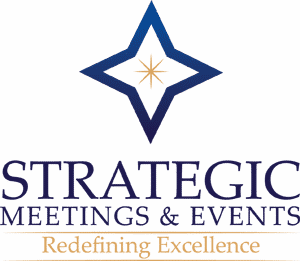Corporate Planners | Seeking A Consensus On Trends
Corporate planners are increasingly feeling pressure in their jobs, due to the climate of heightened cost accountancy, ROI, meetings consolidation, and other fast-moving shifts within Corporate America. To get an update on how corporate planners are adjusting to this pressure, and to get some first-hand accounts of the effects, MeetingNews editor-in-chief David McCann sat down with several at MeetingWorld 2004, in New York City.
MeetingNews: Corporations are placing much greater emphasis on spending controls these days. How is that impacting your department or, from your perspective, corporate planners in general?
 Richard del Colle, meetings & events supplier manager, Hewlett-Packard Co.: There are spending controls, but really it’s more about tying meeting and travel spend to special strategic goals. Before, I think there were a lot of knee-jerk reactions by corporations, where they’d just cut travel and meetings altogether. Now, whether a meeting is on the cost-containment or revenue-generating side of the house, you’re OK if it’s tied to strategic goals.
Richard del Colle, meetings & events supplier manager, Hewlett-Packard Co.: There are spending controls, but really it’s more about tying meeting and travel spend to special strategic goals. Before, I think there were a lot of knee-jerk reactions by corporations, where they’d just cut travel and meetings altogether. Now, whether a meeting is on the cost-containment or revenue-generating side of the house, you’re OK if it’s tied to strategic goals.
Christy Lamagna, vice president of events and operations, Cendant Corp.: For incentive trips, it used to be OK to go to the most expensive, luxurious resorts. Now, it’s, “Where can we go that is cost-affordable?”
We’re doing a lot of cost analysis; for example, whether we can do four meetings at one particular chain in one year and negotiate a multi-program contract at once. We’re also much more careful about how we negotiate our contracts and press the hotels for as many concessions as we can get. It used to be, “Well, if we have to pay for parking, that’s fine.” Now it’s not.
Julie Carroll, national director of strategic partnerships and industry relations, WorldTravel Meetings & Incentives: Our clients are doing all kinds of things to get their arms around meeting spend, to buy smarter. That could be in the form of electronic RFPs, or a tighter RFP process from the very beginning; or making sure they’re minimizing any liability or legal exposure they might have in contracts.
MN: As with cost controls, return on investment for meetings has been identified as a top priority. In what way is that manifesting itself?
Patty Reger, manager of trade development, Pfizer Inc.: What I’m seeing is that we never do things just because we’ve always done them. I do a lot of work with our customers and consumer health division, and often it’s about whether we really do something better, different, more impactful than all the other manufacturers out there.
In terms of how we’re showing ROI, it’s not necessarily scientific. We haven’t gotten to the point of matrices or anything like that. But the discussions are always happening. Instead of just having a pre- and post-con with the hotel, we also have the meetings back at the office, soliciting feedback from customers and colleagues.
I feel as though demonstrating ROI has really helped keep my job secure. There have been many times where I’ve cut the cord on something and said, “We can’t possibly do this.” In the eyes of the people I work with and for, this raises me from a planner to more of a strategic person.
Beth Cooper-Zobott, conference services director, Equity Residential Properties: We have a new program, Pay For Performance, that involves goals and barometers we have to meet. One of mine is meetings ROI. So we have Scantron sheets that people fill out on whether their objectives were met.
Also, since before 9/11, I’ve been calculating the savings I brought to the table and what I was able to negotiate. My barometer, which I worked on with my boss, is that I’ve had a good year if I can demonstrate savings to the company of five times my salary.

Del Colle: For me it’s not so much what my ROI is, it’s how much we are generating in customer sales. And there is a myriad of marketing tools out there that allow you to track your customers.
MN: As you know, the new Sarbanes-Oxley Act may hold planners to a higher standard of cost accounting, require them to implement a host of restrictive new procedures, limit site-selection choices and make ethical business practices a higher priority than ever. Has Sarbanes-Oxley, and the corporate scandals involving Tyco, Enron and others that inspired this new law, had an effect on your meetings or meetings management?
Reger: I work in a small division of a large company and a lot of what I do tends to fly under the radar. But for the larger meetings, finance knew about Sarbanes-Oxley well before the planners did. Now that’s part of the pre-con discussion. My company, in particular, is taking it very, very seriously.
Lamagna: Now, every time we sign a contract, we have to let the finance department know so they can gauge how much liability is involved. It used to be, with budgets, you didn’t bump into anybody from finance. Now they’re at our meetings. It’s a new way to think.
Carroll: There is more control and attention given to industry perks and site inspections. Our corporate customers are now really careful about whom they send on a site inspection. Also, before maybe it used to be a five-day trip, and now it’s two days. And we’ve done customer events for which the customers pay their own airfare.
Some companies’ finance departments are analyzing group productivity tickets for air travel and making sure they’re used in a smart way.
It will be interesting to see what happens with the planner points that hotels give out. I would guess that will change.
Reger: At Pfizer, it’s been OK to accept planner points, though it was against my moral compass. But new procedures are going into effect that say you can’t take the planner points. It will be interesting to see how the hotels respond to that.
MN: More and more companies are placing corporate planners and meetings-management functions under travel departments or having purchasing departments take over procurement of some meeting services. What is your view of those trends?
Del Colle: I think you really have to be careful about saying that travel is taking over meetings. It’s more about identifying the synergies that exist between marketing departments and travel, and then coming up with a solution that allows you to consolidate your company’s data. Travel departments and marketing departments see an opportunity to consolidate data without stepping on each other’s toes.
Lamagna: I previously worked for a company called BroadVision and there it was backwards — the meetings department took over the travel department, and I became the events and travel person. We leveraged all our spending and did national contracts with three hotel chains in different pricing tiers, and with airlines. Then we went on to rental cars.
 I don’t think there’s anything wrong with corporate procurement working with meetings. I don’t think they should take over, but if you can get a procurement person on a meeting team, that’s a bonus.
I don’t think there’s anything wrong with corporate procurement working with meetings. I don’t think they should take over, but if you can get a procurement person on a meeting team, that’s a bonus.
Arlene Sheff, senior meeting planner, The Boeing Co.: I got a note from our travel department, which wanted to know why I picked a specific hotel, and why I got a different rate than our transient rate. So I figured it was a good time to get together with them to discuss the issue and look at their travel system and see how we could improve it to start tracking meetings. Then we could work as a team to go back to the hotels. We talked about the fact that some corporate planners were afraid that if we worked together that travel would want to take over meetings. I didn’t get the impression that they would do that, but I do think that’s a fear that a lot of meeting planners out there have.
MN: One effect of today’s cost environment is that many companies are outsourcing various meeting tasks. What has this trend meant to you?
Del Colle: We really need our third-party suppliers. There’s really no way a company our size can do everything on our own. However, we want them to use our technology tools so we can consolidate the data.
Carroll: I would agree that we’ve seen an uptick in outsourcing. Corporations are realizing that third parties can work in tandem with in-house corporate planners and fill whatever gaps exist, versus being a threat to take over the meetings department.
Right now smaller corporations tend to outsource on a more full-service basis, while larger ones tend to just want holes filled.
Sheff: When I came to Boeing, I started using a site research company and an event company I had worked with previously, and I was called on the carpet to explain why I was doing that. I had to explain how cost-effective it is to have these partners do some of our legwork. For a third party to find a special event venue, then go take pictures of it, and do a preliminary site inspection — it would take me days to do all that. I really had to do a lot of explaining, but they understood my reasoning.
MN: If you could impose one essential change on the way corporate planners do their jobs, what would it be?
Cooper-Zobott: I would require corporate planners to be less secretive with information. Many planners think they’re getting a leg up on the negotiating process if they don’t share their information with hotels, like the total budget and which other hotels they’re looking at. But how can a hotel give you its best proposal if it doesn’t know who the competition is? The more information you share, the more the hotel will get on board to become your partner.
Tags: Corporate Planners Seeking A Consensus On Trends, Corporate Planners, Event Planning, Event Planners, Strategic Planners, Strategic Events, Corporate Meetings, Corporate Events, Corporate Planners, Successful Meetings





